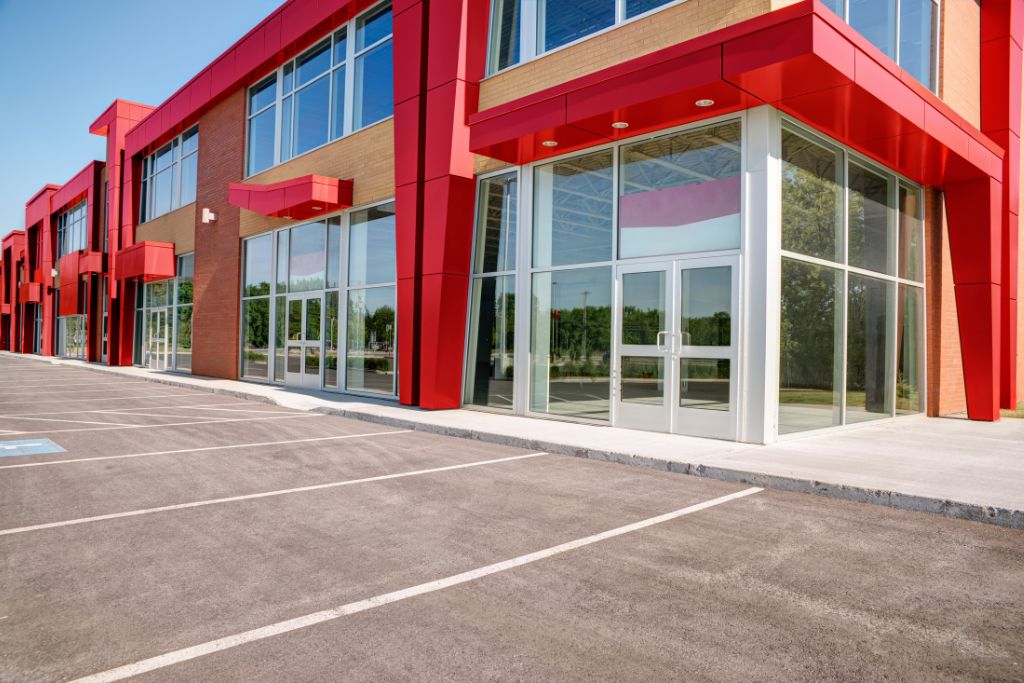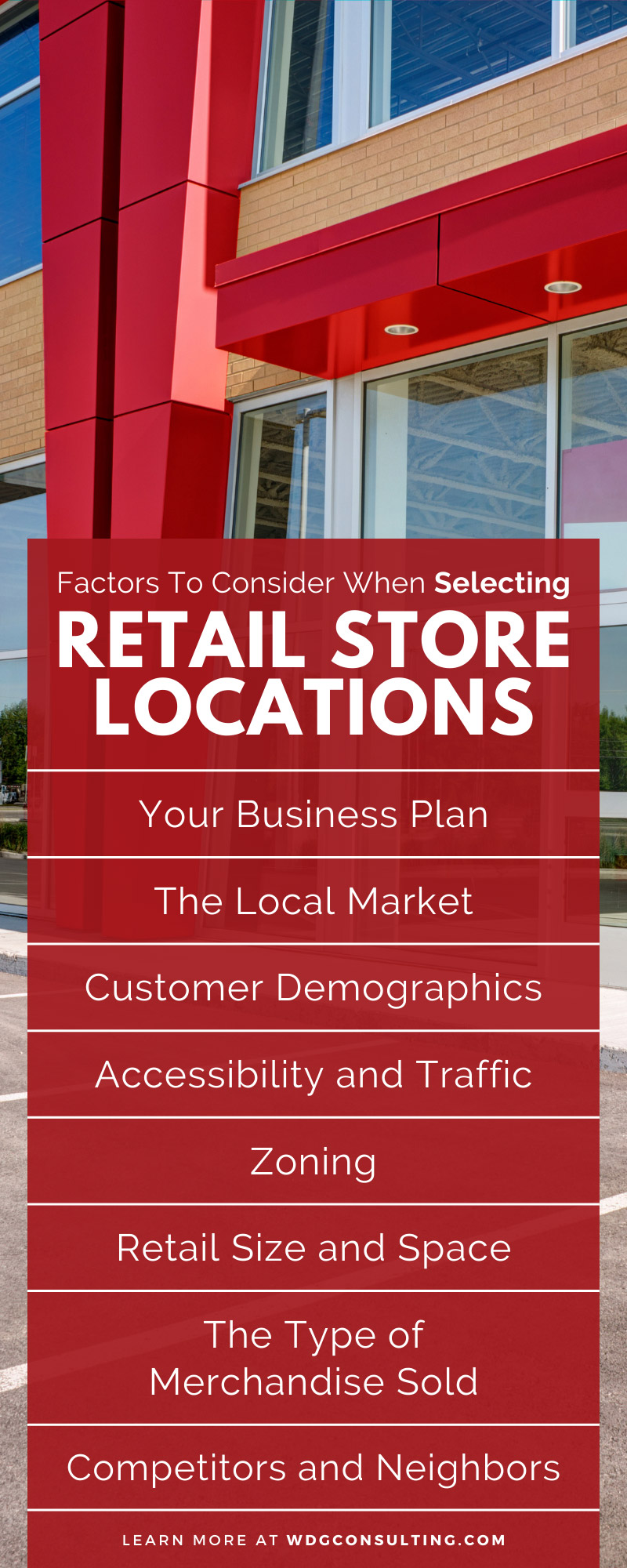Factors To Consider When Selecting Retail Store Locations

Selecting a suitable location for your retail business can be a challenging and consequential decision. Since the retail sector remains a highly competitive and resilient market, your focus is to open a storefront in an area that encourages your business presence, walk-in traffic, and revenue.
So, before you sign on the dotted line, here are factors to consider when selecting a retail store location that could define your business’s future.
Your Business Plan
Before choosing a space, you want to refer to your business plan and evaluate your main objectives upon opening a brick-and-mortar location. Consider the following questions as guidelines to help you envision your company’s goals.
- What are your expectations of the store’s appearance?
- Are you determining retail space, necessary storage area, or office specifications?
- Who are you targeting your business towards?
- What products are you selling to your future customers?
These are relatively basic questions to have answered before scouting potential real estate. Not setting out your objectives can hinder the amount of profit gained in your store.
The Local Market
Assessing the real estate market and submarket of prospective locations provides insight into sales performance levels. You’ll want to inquire about public disclosed documents concerning the site to forecast traffic and revenue.
Customer Demographics
Knowing your target market is essential to the site selection process. Get to learn more about the area by talking to neighboring small retailers.
The better you know your customers, the more precise location you can provide to serve your market. Inquire demographic documentation through the local library that shows population, income brackets, and age. The following points should also give an analysis of your potential site:
- Employment
- Marital status
- Parental status
- Home ownership rates
- Discretionary spending versus non-discretionary spending
Remember that retail consumer behaviors change often, so you’ll want to inquire about ongoing surveys.
Accessibility and Traffic
Business traffic is more than the number of customers coming to your location. The term also considers the type of customer coming in and whether they meet the definition of your target demographic. Your store location may not contribute to your success if consumers walk into your business yet do not finalize sales.
You can consider the following when searching for the optimal site:
- Do more customers walk or drive past the location?
- Is the location accessible via public transportation?
- Is the parking area accessible to consumers and delivery vehicles?
- Does the parking area have adequate parking?
Regarding parking lots, it’s best to select a site with six to eight parking spaces per 1,200 square feet of your building.
Zoning
Contacting the local zoning commission and the city hall can facilitate the understanding of policies and regulations on signage. The commercial property could have limits on size and imagery used in signs. You’ll also want to plan for any construction projects and their impact on traffic.
Retail Size and Space
Examine the location to determine whether the property has adequate space for your services. You may want to compare sites and layouts by using existing location performances. Too large of a property, and your store may look empty and uninviting. On the other hand, too small of an area may result in a cluttered site that inconveniences your customers.
The Type of Merchandise Sold
Surprisingly, specific goods may require looking in certain types of locations. Depending on the property size and the diversity of your merchandise, you’ll want to carefully consider the area.
Convenience
Stores selling convenient goods rely on accessible entry to allow a patron to make quick purchases. The products in many convenience stores interest the general population. A mall space wouldn’t be the best fit for this retail seller since many products are of different price ranges than surrounding stores on the property.
Consumers will gravitate towards convenience shops during their commutes, so choosing a space on a heavily trafficked road or transit hub would be the best fit.
Specialty
Specialty merchandise sellers typically target consumers who wouldn’t mind traveling to obtain merchandise. These businesses may perform well when placed near a shopping location that complements their services.
Shopping
Locations selling higher-priced items, such as vehicles or furniture, classify as big-ticket shopping businesses. You’ll usually locate an upscale retail store farther away from a shopping district to avoid losing customers to their competitors.
Competitors and Neighbors
It’s best to prospect an area to learn about compatible businesses and your competitors nearby. For instance, an upscale clothing store may not perform well in a shopping strip with a discount variety locale and convenience shop. In this case, positioning the clothing boutique near a beauty salon would attract the same clientele and generate more revenue.
Location Costs
While you’ll need funding to cover base rent expenses, you’ll want to adjust your budget for the following costs:
- Routine lawn care and security
- Heating and air conditioning unit maintenance
- Painting and remodeling expenses
- Property taxes
Keep in mind that your location costs will vary between now and the future, but you can determine rent expenses based on sales projections and leases from similar businesses.
And That’s Not All
There are personal factors to consider that may influence your final decision, such as distance from your home and restrictions set by the landlord. You may also have specific requests to alter your options, such as lighting fixtures and hardware.
The following questions are fantastic points to remember:
- Does your site have public restrooms available?
- Does the district have adequate police and fire protection?
- Will you have a sanitation service available?
- Can your locale provide shelter from the elements, like rainstorms and sunlight?
- Does the city or state have blue law restrictions in place impacting Sunday sales?
Considering factors when selecting a retail store location gives your business room to succeed and grow. While one can base their decision on previous experience and intuition, you want to rely on analytics around the area to gauge whether it’s the best site for your objectives.
WDG Consulting is a site selection company and location strategy firm with professionals who have knowledge in the field. Our consultants prioritize trade success and can apply our expertise during the site selection process based on your industry.
Consider browsing our webpage for more information on different types of corporate location consulting and additional services.

